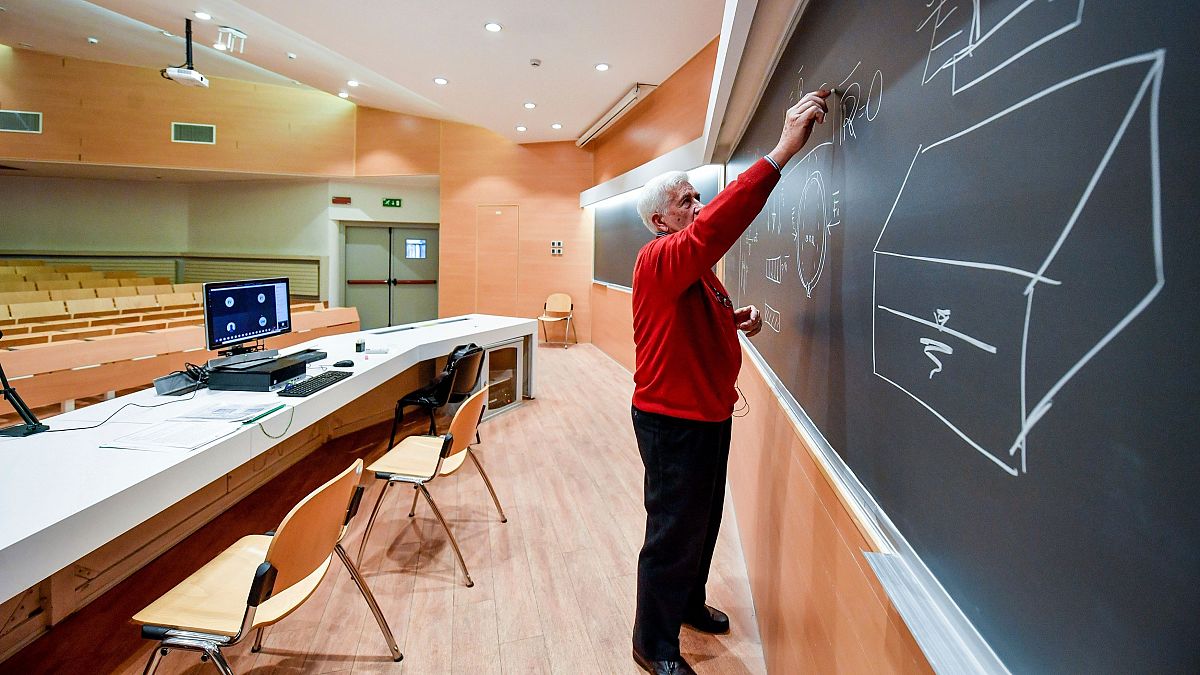Schools in Italy are testing remote teaching methods after the country shut schools and universities as part of its response to the coronavirus outbreak
Watch Giorgia Orlandi's report from Liguria in the video player above.
With the second-highest number of deaths from coronavirus after China, Italy is taking drastic measures to try to stem the spread of the virus.
There are nearly 4,000 confirmed COVID-19 cases in the country, and 148 confirmed deaths.
Italians are having to cope with a number of towns being in lockdown, travel restrictions, and now the two-week closure of all schools and universities.
In the "red zone" in northern Italy, the centre of the outbreak, schools are completely shut, but in the rest of the country, teachers and admin staff are able to go to work.
This means the fight against COVID-19 has become something of an opportunity for some schools, giving them the chance to experiment with teaching remotely, and testing the technology needed.
Not every school is equipped to do so, but for one school in Liguria, north-west Italy, its 1,600 students are reaping the benefits.
Euronews met one of the teachers there, Olga Tartarini, who was using Google Hangouts to ensure her students weren’t missing out on their lesson on the Second World War. The students can see and hear her on their computers, and she is able to add visuals as she teaches by sharing images and maps.
Students have been weighing up the pros and cons. One told Euronews they liked the innovative way of learning, but missed the contact with their schoolmates. Another said not needing to leave the house to take lessons meant more time to complete homework.
All closed schools in the country have been advised to offer e-learning opportunities to ensure education continues. But for some families, the school closures are making life much more difficult.
Giovanna Allegretti, who has an autistic child, told Euronews she needs extra help from social services in order to still use a special needs teacher for her son. As an entrepreneur, if she is to look after her children during school time herself, she would need some financial support.
